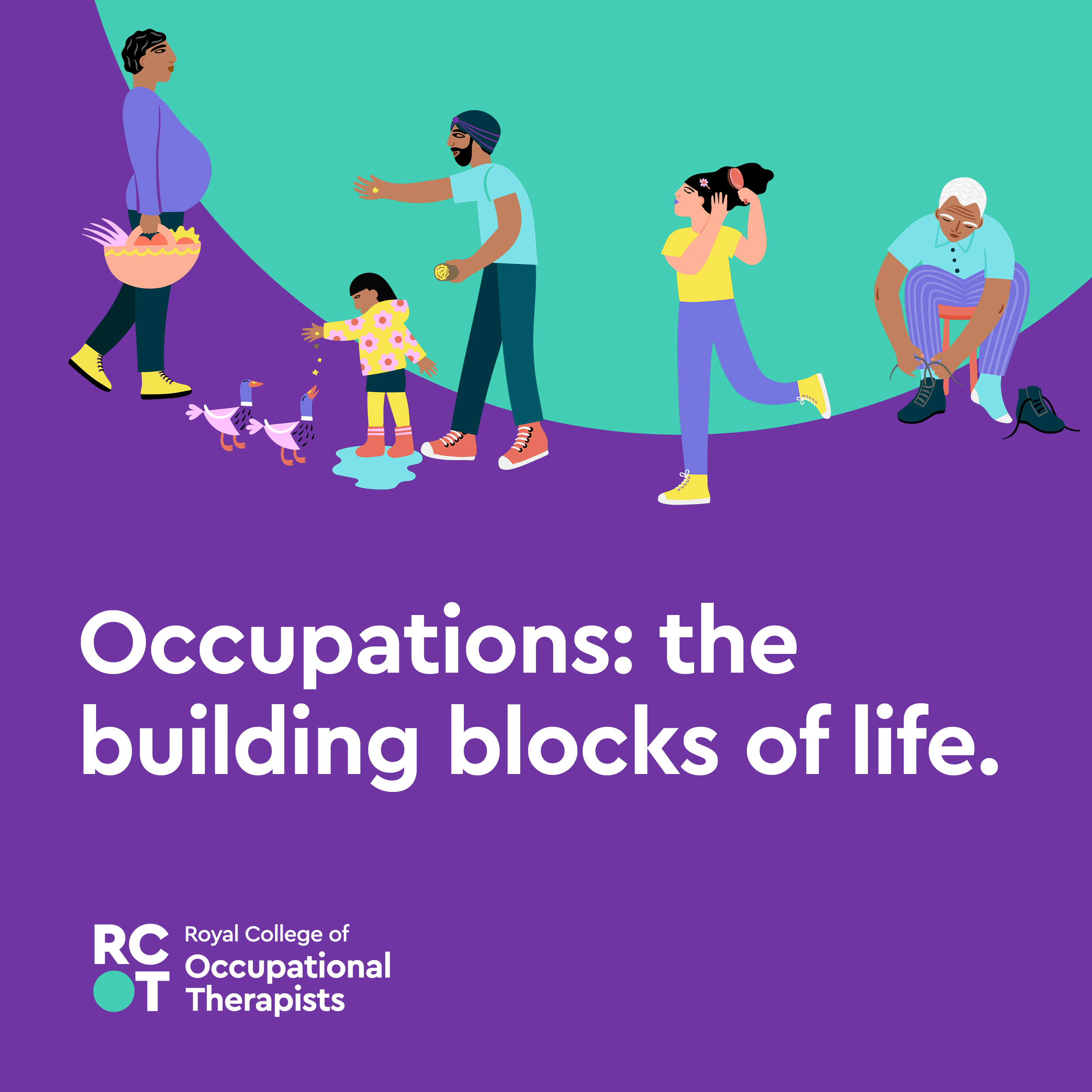Phil Chiza – My OT Journey
I was introduced to the profession soon after my A ‘levels by my sister who worked as a University librarian. What inspired her I am yet to find out!
I remember being asked so often by my friends ‘what does an occupational therapist do?’ I used to answer them using a well-rehearsed textbook definition: that OT uses therapeutic interventions to develop, recover, or maintain meaningful activities. Nine times out of ten, I would get a follow-on question: ‘How does it differ then from physiotherapy?’ I would then excitedly give them my classic example: ‘Physios teach people how to walk, and OT’s teach people how to dance!’ I would then go on to explain how we use occupation, and activities to address areas of dysfunction. I would go further by explaining that because of this, OT’s can work in wide settings, be it education, healthcare, social care, housing, or voluntary sector. By then I knew I would have got their attention. I have been using this approach to engage whoever was fascinated and eager to understand what I had been doing in the various sectors and teams I have worked in over the years.
My OT journey started as a children’s OT back in 2002, and then moved to neuro rehabilitation. I then journeyed into mental health, social care, housing, private practice, reablement, community intermediate care, hospital discharge, and then back again into social care. I have also trained as a Best Interest Assessor (BIA), and I have been a BIA since 2013. I also have post-grad qualifications in Msc Public Health and Msc Project Management.
I am enthusiastic about OT and I am always seeking new challenges. Currently I am the Deputy Team Manager, for the Independent Workforce Team (IWT). I joined during the initial Covid-19 lockdown period. The team was very supportive to ensure that I settled in well, virtually. My role in IWT is about supporting other locality teams: hospital, early intervention and ongoing social care teams in service delivery. It means creating and sustaining the capacity to support the quadrants.
I have always wanted to enhance my skills in leadership, and in representing the profession in wider health and social care platforms. I value collaborative working, particularly how to work more effectively across boundaries and organisations. Currently, I am involved in a Mid and South Essex Health and Care Partnership Quality Improvement leadership programme which is looking at system-wide changes within occupational therapy. It is specifically looking at Occupational therapy pathways across inpatient and out of hospital care (physical, mental Health and social care). The understanding is that this is being looked at in local systems only but not consistently, and that there is waste, duplication and variation in risk thresholds across the sectors.
System working and being a system leader in quality improvement (QI), involves wider networking with related professional organisations. Improvement means using critical reflection, making considered changes and improvements to practice. It also uses knowledge and meanings made from learning. This I believe should be at the heart of what I do as an OT. It’s now more than teaching someone to dance. It’s about improving and transforming services. It’s about leading and supporting change across sustainability and transformation partnership (STP) priorities, working in partnership across boundaries and developing broader engagement and skills. It means using reflective practice to enhance the opportunities for those working with the adult/carer to consider how well their work with the adult/carer has worked. In doing so, it challenges me as an OT on how I can reinforce or adjust practice methods and approaches in my current and future work.
If you are inspired to do more by Phil’s post, we are recruiting Occupational Therapists , search and apply now .



